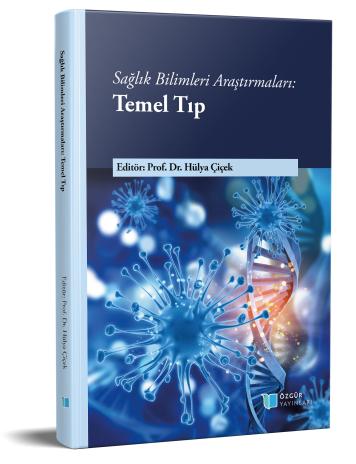
Kanserde Glikoliz Üzerine Uzun Kodlamayan RNA ‘ların Etkileri
Şu kitabın bölümü:
Çiçek,
H.
(ed.)
2023.
Sağlık Bilimleri Araştırmaları: Temel Tıp.
Özet
Kanserli hücreler büyüme, çoğalma ve yayılma için özellikle glukoz metabolizmasını yeniden düzenlerler. Memelilerde glukoz metabolizmasının son ürünü laktat ya da mitokondride gerçekleşen solunum yoluyla glukozun tamamen oksidasyona uğraması sonucu elde edilen CO2 olabilir. Kanserli dokularda oksijenin ve tam olarak işlevini yerine getiren mitokondri varlığında bile glukozun hücre içine alım hızı ile laktat üretiminde artış olmaktadır. Kanserin ilerlemesine önemli bir katkıda bulunan bu olaya Warburg Etkisi adı verilmektedir Glukoz metabolizması iki biyokimyasal süreç ile yürütülür. Bunlardan ilki glukoz alımı, ikincisi ise aerobik glikoliz ve piruvatın laktata çevrilmesidir. Kanser hücrelerinde glukozun hücre içerisine alınmasında önemli bir artış olduğunu belirtmiştik. Bununla birlikte yukarıda da bahsettiğimiz gibi kanserin ayırt edici özelliği olan ve Warburg etkisi olarak tanımlanan süreçle glikoliz yolunda düzensizleşme veya değişmeler meydana gelmektedir. Glikoliz yolunda oluşan değişmelere uzun kodlamayan RNA ‘ların da aracılık ettiği bilinmektedir. Bu bölümde uzun kodlamayan RNA ‘ların glikoliz yolundaki değişmelere etkilerini yapılan çalışmaları ele alarak inceleyeceğiz.

